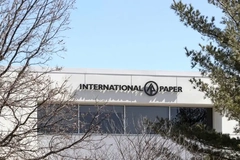Sidel Launches Eco Audit

For the past two years, Sidel has been working on new sustainability solutions for complete lines. This work has led to the creation of the Eco Audit, the newest member of the Sidel Eco Services family, joining Eco Booster and Eco EIT.
Sep 17 2010 --- Sidel is launching the Eco Audit. The goals are to conduct an “Eco-performance” review on bottling lines and, in time, to reduce energy consumption and therefore production costs.
When the brewing company SABMiller asked Sidel’s teams to perform an Eco Audit in March 2010, its goal was to determine the environmental performance of its bottling line in South Africa. SABMiller wanted to set a reference point in terms of both method and results, in order to help reach its targets of a 25% decrease for energy and water consumption and CO2 emissions per hectoliter of beer produced (about 26 US gallons).
“We were actively looking for solutions to reduce our water and energy consumption,” says Stedrick Saayman, Group Packaging Consultant for SABMiller. “The Eco Audit enabled us to quantify the exact needs for each bottling step and to compare them with the new technological standards. The audit also showed how improved bottling efficiency can lead to a significant drop in water consumption by more than 2 m3/hour.”
For the past two years, Sidel has been working on new sustainability solutions for complete lines. This work has led to the creation of the Eco Audit, the newest member of the Sidel Eco Services family, joining Eco Booster and Eco EIT.
An Eco Audit is a snapshot of a complete line’s situation in full production. There are two major objectives: first, to evaluate any gaps in production performance and energy consumption between the real operation of the line and its original specifications, and second, to establish a reference point and identify levers for an improvement plan aimed at generating energy savings or improving performance quickly based on concrete recommendations. The Eco Audit is also used to quantify subjective data concerning the line’s performance so that actions can be planned and implemented in order to meet the agreed targets in the allotted time. The Eco Audit also summarizes the line’s potential to reach a “World-Class” production level in the medium or long term.
In addition, to reduce water and power consumption and to cut production costs, it is necessary to have a precise analysis of all line consumptions (power, air, steam, water, CO2, etc.) at the same time as equipment performance is determined (line efficiency, machine reliability, changeovers, cleaning operations, shutdowns).











